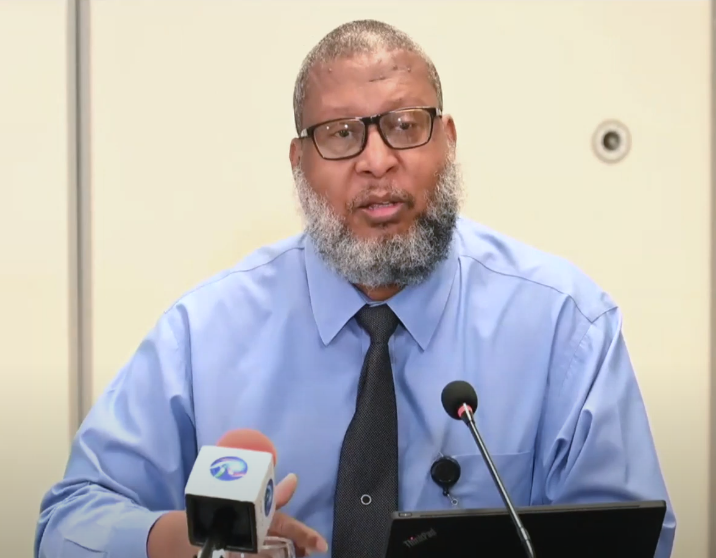The Caribbean Examinations Council (CXC) unveiled its regional framework for the adoption of artificial intelligence (AI) in education, as the region moves toward broader acceptance of the new technology.
With nearly 70 percent of Caribbean member states currently lacking formal AI policies or frameworks amidst an explosion of AI tools across the globe, UWI officials stressed the urgent need for regional guidance as educational technologies rapidly evolve.
During a press conference yesterday, Rodney Payne, CXC’s Director of Technological Innovation, explained that “for us to benefit as a region, we need harmonious development, utilizing the technologies across the board. It’s not going to help us if one state moves ahead quickly and the others are struggling to follow, because CXC’s exams are not territorial.”
The framework provided guidance through 10 policy elements designed to ensure responsible AI implementation while maintaining academic standards.
Payne emphasized that the framework is not prescriptive but rather provides guidance that can adapt as technology changes.
“It’s to facilitate harmony. Each member state, each set of candidates should have an equal opportunity to benefit from the technologies that are available,” he said.

The AI policy framework will place emphasis on keeping humans at the centre of educational technology.
The government of Anguilla became the first Caribbean nation to sign a Memorandum of Understanding with CXC to collaborate on implementing these AI policies.
The agreement was signed by CXC Registrar and CEO Dr Wayne Wesley and Dr Bonnie Richardson Lake, Permanent Secretary in Anguilla’s Ministry of Social Development and Education.
“This MOU signals a shared commitment to shaping the future of education that remains relevant, responsible, and aligned with technological advances,” Dr Richardson Lake said during the signing ceremony.
CXC has also developed standards and guidelines for the use of AI in assessments, which will be implemented for school-based assessment submissions beginning in 2026. The standards will focus on ethical use, academic integrity, data privacy, security, and maintaining measurement principles in assessment development.
Dr Nicole Manning, CXC’s Director of Operations, explained that conventional assessment approaches need reconsideration in the age of AI.
“With AI, you cannot just give a candidate a question, [because] they go home, and they can actually just provide a response from AI. It’s going to require higher-order thinking, more performance-based type assessment,” she said.
The Caribbean AI policy follows the recent launch of Project Jaguar AI in Antigua and Barbuda, the region’s first educational AI tutor designed specifically for Caribbean curricula. The AI tool was created with support from the Ministry of Education, which provided curriculum materials and past examination papers to help train the system.
The regional policy framework is part of CXC’s broader strategic repositioning, which Dr Wesley described as “the beginning of the end of the Caribbean Examinations Council as you know it.”
The AI policy framework and guidelines documents are now available on the CXC website at www.cxc.org/ai-policy.




